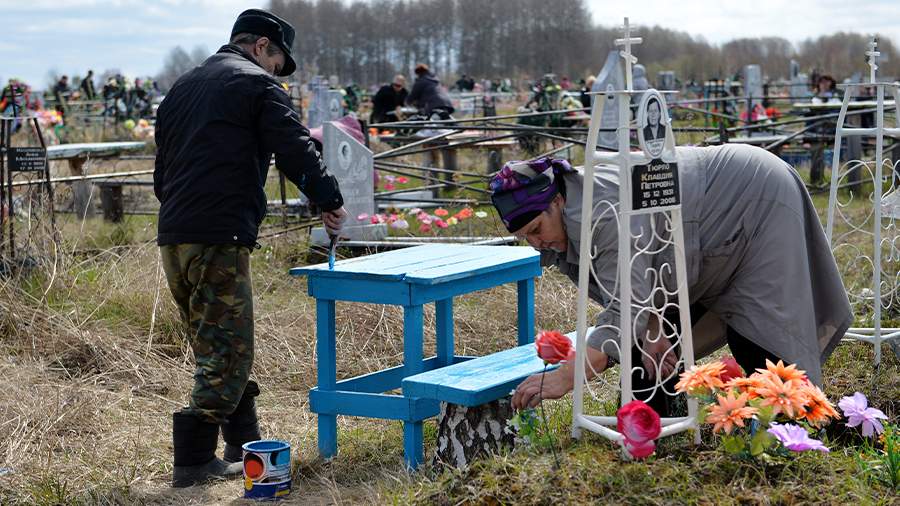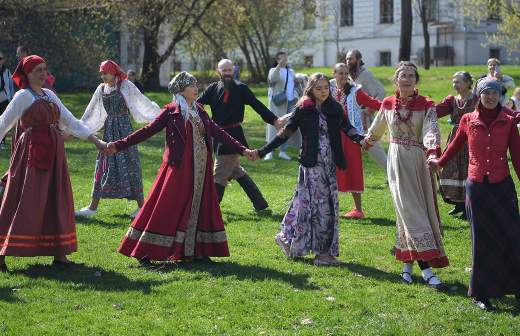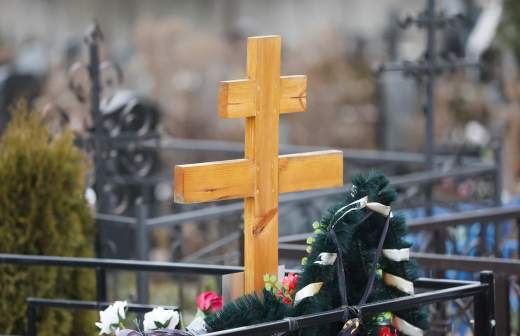Memorial Day after Easter: the most powerful prayers for the deceased are published
- Новости
- Local news
- Memorial Day after Easter: the most powerful prayers for the deceased are published

On the ninth day after Easter, the Orthodox Church celebrates Radonitsa, a special day of commemoration of the dead, during which believers can share the joy of the Resurrection of the Lord with those who have already left this world. In 2025, it falls on April 29. Izvestia tells us how to remember the dead properly and what prayers to read.
Memorial Day after Easter in 2025
Radonitsa is the day of special commemoration of the dead closest to Easter. According to the church charter, during Great Lent, funeral liturgies in churches are performed only on designated days: on Saturdays of the second, third and fourth weeks. During Holy Week, before the Resurrection of the Lord, church-wide commemoration of the dead is not held, as believers remember the last days of the life of Jesus Christ and his sufferings on the cross.
Easter and the Bright Week following it are also not suitable for commemoration — this is the time of the living, the celebration of victory over death, which the Savior won by resurrecting on the third day after his execution on the cross.
After St. Thomas Sunday (Antipascha), memorial services are allowed on the next day, when it is possible to celebrate the full rite of the Liturgy — in the evening and in the morning. Such a day is Tuesday of the second week after Easter — Radonitsa.
Despite its purely ecclesiastical character, Radonitsa has pagan roots. The ancient Slavs, who lived on the territory of modern Belarus, Ukraine and the modern part of Russia, believed that the souls of people who died a nonviolent death entered Iriy, an afterlife located in the far southern regions, where only birds could get from the living. Life there was different, but not much different from what people did before they died.
At the same time, the ancient Slavs believed that the dead did not leave them forever, but became guardian spirits of the family. On certain days of the year, they could return to earth, visit their descendants, help them with their business, or, conversely, send bad luck and curses. Therefore, the ancestors tried to appease the dead with rituals: lavish meals, songs, festivities, etc.
Special periods of commemoration, as a rule, fell on the days of the equinox and solstice, as well as on the beginning and completion of some field work. Radonitsa, which at that time was called Radunitsa, was associated with the arrival of spring. On the holiday, the Slavs went out into the fields and called the spirits, asking for a rich harvest. At the same time, they tried to please the dead with kind words and plentiful treats, which were left in cemeteries.
With the advent of Christianity in Russia, pagan rituals replaced worship, and the holiday acquired a new meaning. Now Radonitsa is an opportunity for believers to share the joy of Easter with their deceased loved ones. It reflects the Orthodox belief that after death, a person's life continues, and their involvement in the church persists.
Where and how to commemorate the dead with prayer and kind words
Commemoration of the dead is an important part of a Christian's life. It is believed that after death, a person loses the opportunity to pray for himself and repent, since repentance implies not only regret for mistakes made, but also a deep inner change, which only the living are capable of. However, this does not mean that there is no hope of salvation for the deceased, as his remaining loved ones can pray for him.
On Radonitsa, as on any other memorial day, believers should attend the liturgy in the church, pray and light a candle for the repose. It is also recommended to confess and receive communion. If desired, you can make a donation: leave food in the temple for those in need, buy something at the temple shop or put a few bills in a special drawer.
After the service, it is customary to visit the graves of relatives. In the cemetery, it is allowed to read the Easter Canon and Easter verses in order to share with the dead the joy of a bright celebration. It would also be appropriate to commemorate a person with a secular rank or invite a priest to perform the liturgy. After that, you can clean up the grave and light a candle. But you should not leave food and alcohol for the deceased — this is a relic of pagan rituals that have nothing to do with Christianity.
You can also honor the memory of those who died on Radonitsa at home, during a memorial meal. It should be a quiet feast with the closest ones, dedicated to the memories of the deceased.
Before sitting down at the table, you should read a prayer, especially if you have not had the opportunity to visit the temple. Traditionally, kutya, pancakes and favorite dishes of the deceased are prepared on Radonitsa. Alcohol during the meal is prohibited, as this is contrary to church regulations.
Commemorating the deceased on Radonitsa is worth not only prayer, but also good deeds. To do this, you can give alms on his behalf, participate in charity events, etc.
The most powerful prayers for the repose of the dead
The Orthodox Church does not establish strict rules for commemorating the dead on Radonitsa or other days. Believers can pray for the deceased in their own words, read one of the existing prayers, submit a note with his name before the liturgy, and order a memorial service in the church. At the same time, it is believed that the funeral prayer will be more effective if the commemorating person receives communion.
If a believer wants to remember a loved one on his own, without the participation of a priest, he can perform the rite of litia for the laity. Its full text is available on Orthodox portals.
You can also read the universal prayer for the deceased.:
"Remember, O Lord our God, in the faith and hope of eternal life, the departed (deceased) slave (slave) Your (Your) (name), and as a Good and Loving Man who forgives sins and iniquities, let go and forgive all his voluntary and involuntary sins, deliver him from eternal torment and the fire of Gehenna, and grant him communion and enjoyment of Your eternal blessings, prepared for those who love You: for although he sinned, he did not depart. from You, and without a doubt, I believed in the Father and the Son and the Holy Spirit, the God glorified in the Trinity, and I confessed the Consubstantial Trinity Orthodox even to my last breath."
In addition, there is a short prayer for the dead, which can be read not only on Radonitsa, but also at any commemoration.:
"Rest, Lord, the souls of Your departed servants: my parents, relatives, benefactors (their names), and all Orthodox Christians, and forgive them all their sins, voluntary and involuntary, and grant them the Kingdom of Heaven."
Separately, on Radonitsa, it is worth remembering the closest ones: parents, children, spouses. Prayer texts can be found on Orthodox websites.
It is also allowed to read Psalm 90, "You who live in the help of the Most High," and kontakion 8, "Rest with the saints." If desired, the believer can recite other prayers.
Earlier, Izvestia shared postcards and pictures of Radonitsa.
Переведено сервисом «Яндекс Переводчик»



